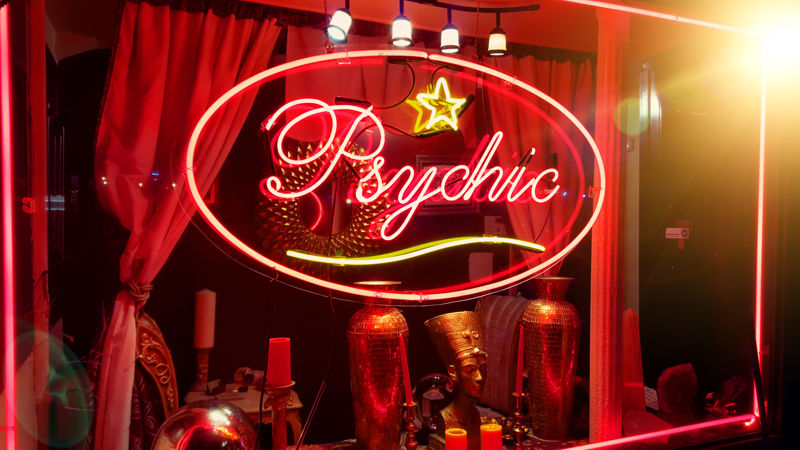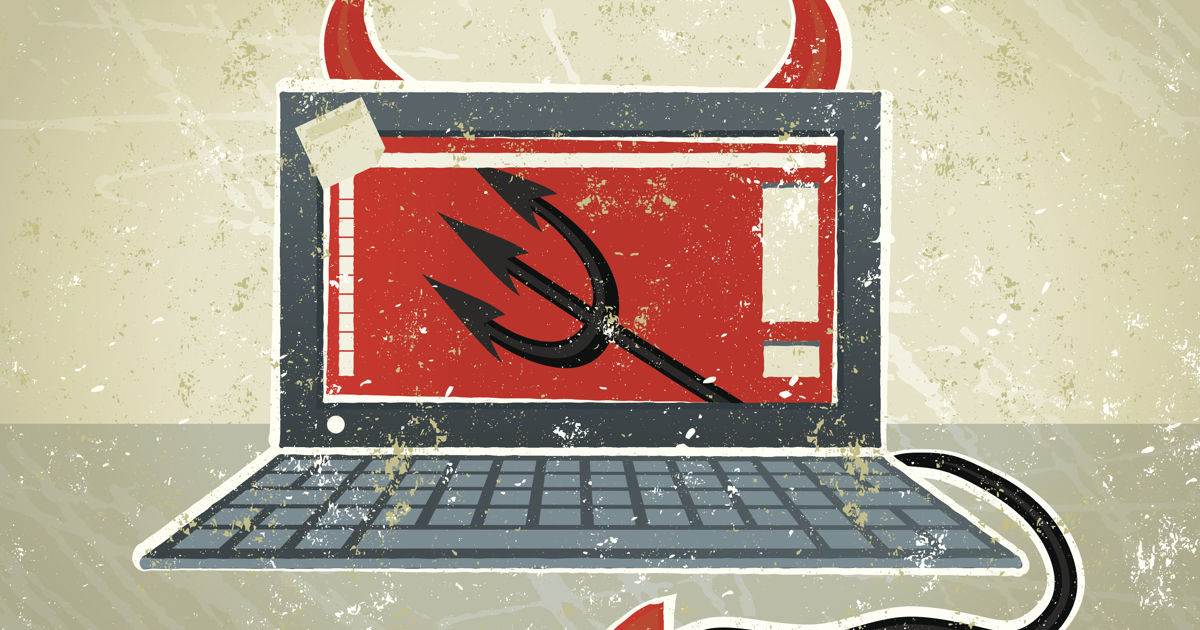Shock ‘n’ troll: Is moral outrage stifling creativity?
Ever since Gutenberg invented the printing press, people have vented their spleens. Now, with huge social media reach at our fingertips, amplified by clickbait-chasing media, public opinion has the power to pull down brands in hours. But if the best creative ideas always polarise, when does healthy debate become something more sinister? Selena Schleh investigates.
Back in the 19th century, if something induced your bile, you’d pen a letter to the editor of The Times and wait for publication.
But ‘Disgusted of Tunbridge Wells’ looks a little different in the digital age. Now, you grab your phone and fire off 280 characters on Twitter, @-ing the object of your censure. Amplifying this is the catnip appeal of online outrage to outlets on the hunt for clickable content: stoked by the oxygen of mainstream media coverage, a grumbling ember can swiftly become a full-blown PR wildfire.
Stoked by the oxygen of mainstream media coverage, a grumbling ember can swiftly become a full-blown PR wildfire.
The trend has become even more pronounced since the pandemic confined us to the digital world: doom-scrolling and screaming into endless echo chambers. As Morgan Whitlock, EP at the Sweetshop points out: “Not only are we all trapped; times are stressful, there’s so much anxiety, that generates a very emotional response from people when they’re viewing and commenting on things."
Credits
powered by
- Agency Creators League Studio/New York
- Production Company Picture Farm/USA
- Director Michael Bernard
-
-
Unlock full credits and more with a Source + shots membership.
Credits
powered by
- Agency Creators League Studio/New York
- Production Company Picture Farm/USA
- Director Michael Bernard
- Producer Allison Sipes
- Creative Director Kristin Patrick
- Executive Producer Ally Polly
- Executive Producer Ben Freedman
- Editorial Creative Director Peter Kasko
- DP Bjorn Charpentier
- Talent Kendall Jenner
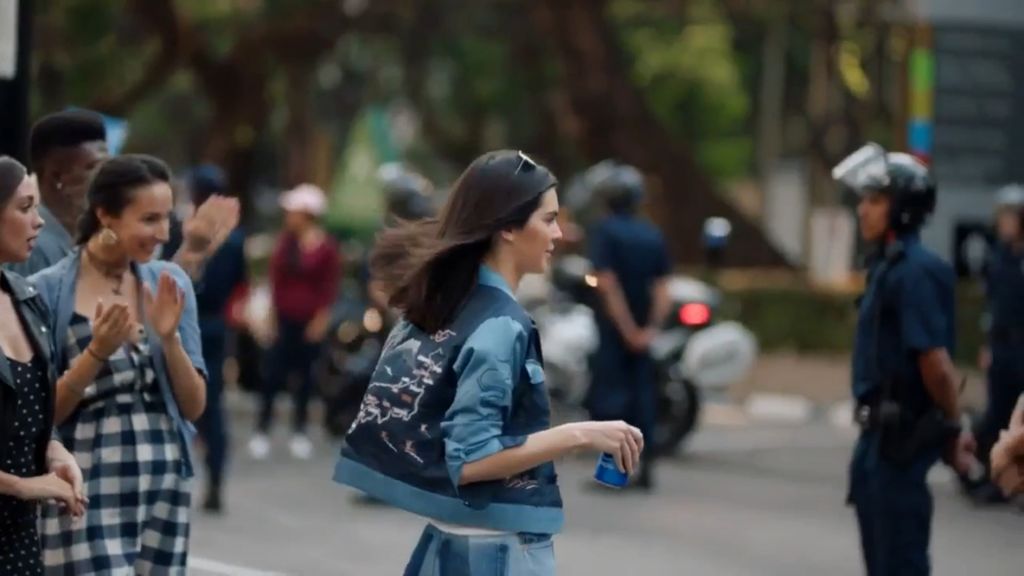
Credits
powered by
- Agency Creators League Studio/New York
- Production Company Picture Farm/USA
- Director Michael Bernard
- Producer Allison Sipes
- Creative Director Kristin Patrick
- Executive Producer Ally Polly
- Executive Producer Ben Freedman
- Editorial Creative Director Peter Kasko
- DP Bjorn Charpentier
- Talent Kendall Jenner
Above: The Kendal Jenner-starring Pepsi spot was greeted with a vociferous online backlash.
Of course, there’s nothing wrong with healthy public debate, and keyboard warriors have played an important part in calling out egregious examples of bias, outdated thinking or hypocrisy by brands. Remember the backlash that greeted Kendall Jenner’s infamous Pepsi commercial, which tried to capitalise on the Black Lives Matter movement to flog fizzy pop? What about the barrage of complaints that met Snickers’ Speed Walker spot and its casual-homophobia-for-laughs? Or the eagle-eyed Twitter users who flag up “everyday sexism” such as the Co-op’s Easter print ad encouraging parents to: "Be a good egg. Treat your daughter for doing the washing up." The list goes on, proving that advertising benefits from scrutiny and accountability.
How can brands juggle the need to have a purpose and stand by their convictions with the constantly looming threat of cancel culture?
But what about when ‘scrutiny’ crosses into straight-up trolling – and outraged comments, far from being warranted are in fact cynical attempts to take over the debate and further more nefarious agendas? How can brands juggle the need to have a purpose and stand by their convictions with the constantly looming threat of cancel culture? As Grant Hunter, Global ECD at Iris, notes: “The best ideas will always polarise: when you are creating progressive work which moves the conversation forward, then there will always be those who feel threatened by it.”
Forgetting the season of peace and goodwill to all men, racist tub-thumpers flocked online.
A case in point is Sainsbury’s 2020 Christmas campaign. Sweetly sentimental, The Gravy Song depicts a phone call between a father and daughter, longing to be reunited at Christmas and joking about family gravy-making traditions, cut with a montage of family photos. So far, so innocuous, but for the fact it featured a black British family. Forgetting the season of peace and goodwill to all men, racist tub-thumpers flocked online, claiming the ad wasn’t ‘representative’ of them (despite the fact it was one of three films – the second featured a white family) and threatening to boycott the retailer. “Where are the British people?” “You may as well rename yourself Blackbury’s”, “You’ve managed to completely alienate the few remaining White customers you still had”, were just some of the choice comments splashed across social media.
Credits
powered by
- Agency Wieden + Kennedy/London
- Production Company Pulse Films/London
- Director ThirtyTwo
-
-
Unlock full credits and more with a Source + shots membership.
Credits
powered by
- Agency Wieden + Kennedy/London
- Production Company Pulse Films/London
- Director ThirtyTwo
- Editing The Assembly Rooms
- VFX Time Based Arts
- Sound Design Factory
- Creative Director Darren Simpson
- Creative Albert Pukies
- Creative Joe Bruce
- Executive Creative Director Tony Davidson
- Executive Creative Director Iain Tait
- Producer Matthew Ellingham
- Producer Aran Patterson
- Creative Producer Rebecca Herbert
- Design Director Karen Jane
- Motion Designer Jon Harris
- Executive Producer James Sorton
- Producer George Saunders
- Editor Nick Allix
- Editor Eve Ashwell
- Edit Producer Daniel Breheny
- Colourist Lewis Crossfield
- VFX Producer Jo Gutteridge
- Sound Designer Anthony Moore
- Sound Designer James Utting
- Sound Producer Deborah Whitfield
- Composer Zebedee Budworth
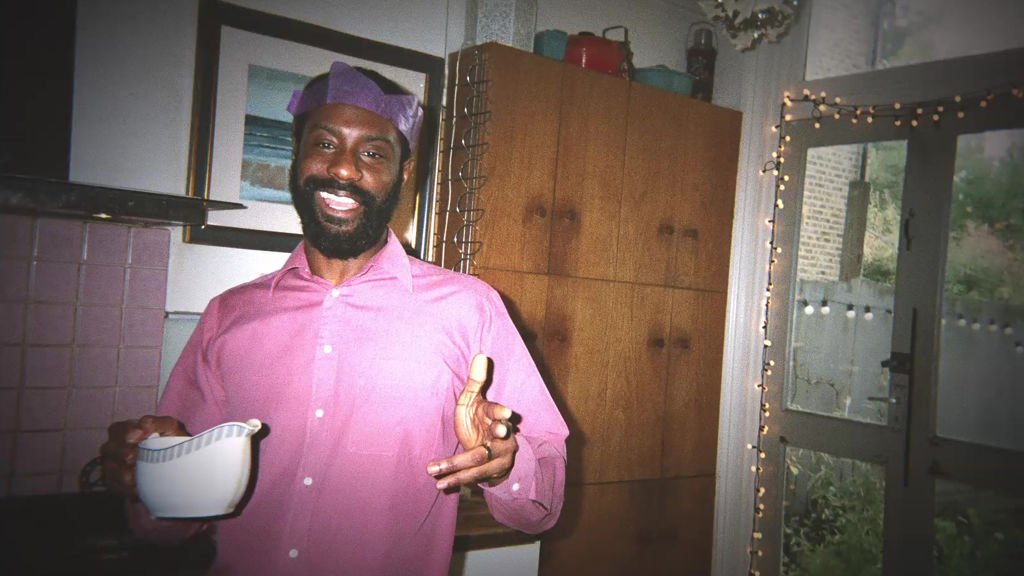
Credits
powered by
- Agency Wieden + Kennedy/London
- Production Company Pulse Films/London
- Director ThirtyTwo
- Editing The Assembly Rooms
- VFX Time Based Arts
- Sound Design Factory
- Creative Director Darren Simpson
- Creative Albert Pukies
- Creative Joe Bruce
- Executive Creative Director Tony Davidson
- Executive Creative Director Iain Tait
- Producer Matthew Ellingham
- Producer Aran Patterson
- Creative Producer Rebecca Herbert
- Design Director Karen Jane
- Motion Designer Jon Harris
- Executive Producer James Sorton
- Producer George Saunders
- Editor Nick Allix
- Editor Eve Ashwell
- Edit Producer Daniel Breheny
- Colourist Lewis Crossfield
- VFX Producer Jo Gutteridge
- Sound Designer Anthony Moore
- Sound Designer James Utting
- Sound Producer Deborah Whitfield
- Composer Zebedee Budworth
Above: Sainsbury's 2020 Christmas commercial caused "racist tub-thumpers" to complain online.
Standing cool in the face of the backlash, Sainsbury’s responded with a statement that, as an inclusive retailer, it sought to represent a modern and diverse Britain in its advertising. Even more pleasingly, a slew of competitors came out in solidarity: Aldi, Asda, Co-op, Iceland, Lidl, Marks & Spencer, Sainsbury’s, Tesco and Waitrose all ran their adverts back-to-back during two primetime slots on Channel 4, with the hashtag #StandAgainstRacism.
A Daily Mail article [branded] the ad ‘twisted’ and ‘insensitive’ to children.
The level of public vitriol perhaps shouldn’t have come as a surprise, given the outraged response earlier in the year to Diversity’s Black Lives Matter-inspired dance performance during Britain’s Got Talent (more of which later). Race issues are still, clearly, an emotional powder-keg. But surely, no-one could find fault with the official NHS Charities Christmas campaign, a powerfully emotional tale of Santa being rushed to hospital and recovering under the care of a kindly nurse? Especially when its aim was raising money to fund NHS front-liners and volunteers, for whom we all clapped so enthusiastically back in March.
While the initial response to The Gift , created by Iris and produced by the Sweetshop, was overwhelmingly positive, things swiftly soured with the publication of a Daily Mail article, branding the ad ‘twisted’ and ‘insensitive’ to children and highlighting a handful of negative comments from social media; “Not happy terrifying adults, they now want to traumatise young children with this sick scaremongering”, and “You’ve taken their education away now you want to take their innocence?”. The story quickly gathered traction across news and industry media; faced with growing controversy, the charity pulled the ad after just one week.
The story quickly gathered traction across news and industry media.
“We were gutted,” says the Sweetshop’s Whitlock; a sentiment echoed by Iris’s Hunter. Hunter believes the complaints were unwarranted – the ad had been cleared by Clearcast, didn’t receive an ex-kids rating and wasn’t targeted at children. In addition to the usual research and testing, creative and production liaised with the NHS medical team throughout. “We were very mindful of sticking to current medical protocol both in terms of what we depicted in the film and how we produced it,” says Hunter. “Plus, our hero clearly doesn’t have Covid, as we would have shown him in a full Covid secure ward with staff in full PPE.”
Credits
powered by
- Agency iris Worldwide/London
- Production Company Sweetshop/UK & Europe
- Director Nicolas Jack Davies
-
-
Unlock full credits and more with a Source + shots membership.
Credits
powered by
- Agency iris Worldwide/London
- Production Company Sweetshop/UK & Europe
- Director Nicolas Jack Davies
- Music Supervisor Theodore
- VFX No.8
- Executive Creative Director Grant Hunter
- Creative Director Daryl Corps
- Executive Producer Morgan Whitlock
- Executive Producer Justin Edmund-White
- Producer Jessica Wylie
- Editor Billy Mead
- Colorist Simone Grattarola
- Sound Sam Robson
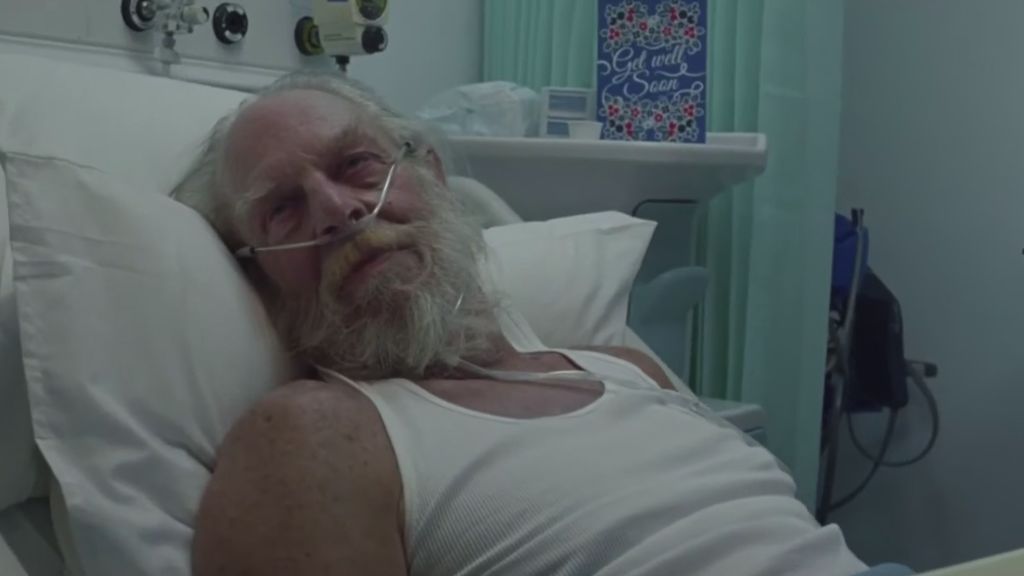
Credits
powered by
- Agency iris Worldwide/London
- Production Company Sweetshop/UK & Europe
- Director Nicolas Jack Davies
- Music Supervisor Theodore
- VFX No.8
- Executive Creative Director Grant Hunter
- Creative Director Daryl Corps
- Executive Producer Morgan Whitlock
- Executive Producer Justin Edmund-White
- Producer Jessica Wylie
- Editor Billy Mead
- Colorist Simone Grattarola
- Sound Sam Robson
Above: A recent NHS Charities Christmas campaign was pulled from air after a minority of online trolls took against it and the Daily Mail exacerbated the story.
In fact, the conversation had been hijacked by a handful of people with alternative agendas. “If you look at the previous tweets from the accounts that the Mail quoted, you’ll find 'The Pandemic is a hoax' messages to anti-vaccination, anti-NHS rhetoric and government propaganda conspiracy theories,” says Hunter. “We were also surprised by how many other titles just took the Mail’s lead and also quoted the same tweets from the Mail article.”
What disappointed me was that the negative comments got recycled immediately by news outlets and some industry outlets.
“What disappointed me was that the negative comments got recycled immediately by news outlets and some industry outlets, without balancing it with the positivity [the ad] had initially been met with,” adds Whitlock. “So a tiny minority of voices dominates the conversation, and the next tier of reports makes them seem like the majority opinion. It made me realise there is a cycle that can be created very easily with a few loud, strong opinions, which quickly takes on its own momentum.”
It wasn’t the first time Iris and the Sweetshop had encountered media amplification of online opprobrium. Released in answer to the Channel 4 Diversity award, which focussed on the authentic representation of the LGBTQ+ community, their pro-trans commercial for Starbucks, What’s Your Name documents a lovely moment of recognition when a young transman, who is shown struggling with being constantly deadnamed ‘Gemma’, finally gets to use his new name, James, on a coffee cup.
It made me realise there is a cycle that can be created very easily with a few loud, strong opinions, which quickly takes on its own momentum.
The spot was met with widespread support and praise from the trans and non-binary community. However, another strand of the campaign – Starbucks’ partnership with trans teen charity Mermaids to raise money via sales of a limited-edition cookie – generated a slew of online complaints and negative headlines. The brand was accused of ‘throwing their corporate weight behind the child sex-change agenda’, of ‘swell[ing] the coffers of a controversial charity… which pushes teens into transgender treatment too early’, and “furthering an agenda that violates basic safeguarding, fosters secrecy, and sets children down the path to irreversible harm”.
Credits
powered by
- Agency iris Worldwide/London
- Production Company The Sweetshop/London
- Director Nicolas Jack Davies
-
-
Unlock full credits and more with a Source + shots membership.
Credits
powered by
- Agency iris Worldwide/London
- Production Company The Sweetshop/London
- Director Nicolas Jack Davies
- Producer Emily Hendrey
- Offline tenthree
- Post Production Time Based Arts
- Sound Factory Studios/London
- Creative Director Elinor Vasiliou
- Creative Giulia Frassine
- Creative Anny Heyden
- Agency Producer Richard Blaxill
- Art Production Lu Howlett
- Art Production Jody Brown
- Production Paris Bennett
- Editorial Director Vino Vethavanam
- Art Director Scarlett Clifford
- DP Ula Pontikos
- Executive Producer Justin Edmund-White
- Executive Producer Morgan Whitlock
- Producer Hannah Cooper
- Music Zebedee Budworth
- Executive Creative Director Grant Hunter
- Creative Richard Peretti
- Creative Matt Gray
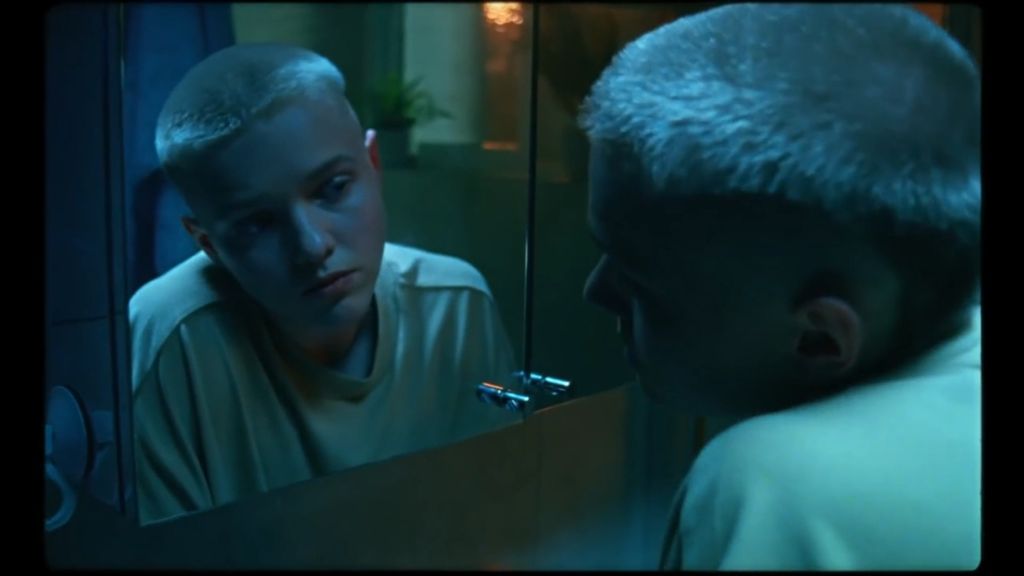
Credits
powered by
- Agency iris Worldwide/London
- Production Company The Sweetshop/London
- Director Nicolas Jack Davies
- Producer Emily Hendrey
- Offline tenthree
- Post Production Time Based Arts
- Sound Factory Studios/London
- Creative Director Elinor Vasiliou
- Creative Giulia Frassine
- Creative Anny Heyden
- Agency Producer Richard Blaxill
- Art Production Lu Howlett
- Art Production Jody Brown
- Production Paris Bennett
- Editorial Director Vino Vethavanam
- Art Director Scarlett Clifford
- DP Ula Pontikos
- Executive Producer Justin Edmund-White
- Executive Producer Morgan Whitlock
- Producer Hannah Cooper
- Music Zebedee Budworth
- Executive Creative Director Grant Hunter
- Creative Richard Peretti
- Creative Matt Gray
Above: Starbucks' pro-trans commercial generated online complaints.
Unlike the NHS Charities spot, the client had anticipated controversy by the very nature of the campaign subject-matter, says Hunter. “They were super-aware of the potential backlash but felt the authenticity of the work outweighed any risk from certain quarters.” In short, there was always going to be some level of negative response, but the most important thing was finding and portraying a truth that resonated with the audience that mattered the most: the trans community. As Hunter points out, identity and names on cups are “intrinsically a Starbucks brand asset”, making it authentic to the brand and to the trans experience. “If we’d have got that wrong and offended the [trans] community, the whole thing would’ve fallen over,” points out Whitlock. But with the trans community onside, any negative chatter simply raised the campaign’s profile. “[The client] had already chosen to be on that side of the argument, so there’s no such thing as bad publicity, it just gave them a bigger platform,” says Whitlock. “And from a brand point of view, it’s a good thing that more people know where they stand.”
[The client] had already chosen to be on that side of the argument, so there’s no such thing as bad publicity.
Another brand which unequivocally let its audience know where it stood – this time on the hugely divisive issue of race – is ITV. Last year, an episode of Britain’s Got Talent [BGT], featuring a Black Lives Matter-inspired routine performed by dance group Diversity drew online ire and a record 24,500 complaints to Ofcom, ranging from “overly political” to “racism against white people”. This being live TV, some degree of public reaction had been anticipated, but, says Nils Leonard, co-founder of Uncommon Creative Studio, ITV’s agency, “everyone underestimated the scale and ferocity of the response.” Rather than waiting for the regulator’s decision (the complaints were ultimately dismissed), ITV swiftly doubled down on its anti-racism stance.
Last year, an episode of Britain’s Got Talent... drew online ire and a record 24,500 complaints to Ofcom, ranging from “overly political” to “racism against white people.
“We didn’t have a discussion with ITV straight after the event, but it felt like we both shared an ambition to be more than passengers in the moment,” Leonard explains. “ITV immediately put out a statement of support across all their channels and Uncommon had already begun trying to find the most powerful and simple way to do the same in other channels.” 48 hours later, a full-page ad featuring the caption "We are changed by what we see. Just as we are changed when we are seen" and “ITV stand with Diversity" over a striking, black-and-white image of BGT judge and Diversity member Ashley Banjo ‘taking the knee’ during the performance, appeared in national newspapers.
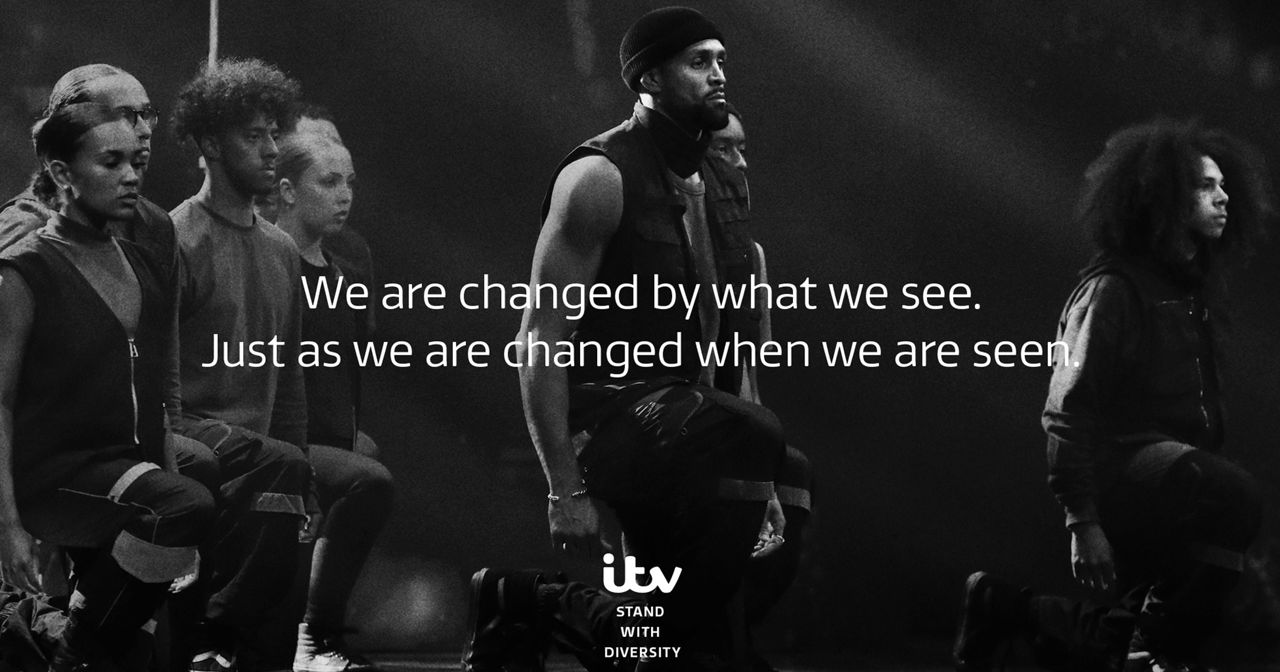
Above: ITV took out a full page ad in support of Diversity's BGT performance, which had drawn a record 24,500 complaints to Ofcom.
Were other, less bold, options discussed? “There was no way ITV or Uncommon was going to stand in silence on the periphery when we knew that this very moment, and every other like it, had the power to create the change needed,” insists Leonard. “If the voices that were willing to, spoke out, and the people that were able to, made the difference they could make then we will have done the best we could. There is no fence to sit on, only a choice to make, and our silence on this issue will only allow more dangerous voices to be heard in our absence.”
There is no fence to sit on, only a choice to make, and our silence on this issue will only allow more dangerous voices to be heard in our absence.
Like What’s Your Name, the Diversity ad is a powerful riposte to the argument that cancel culture might be stymying creativity. After all, if the creative starting point is: ‘Who could be offended by this?’, isn’t a vanilla approach the safest for brands? “I don’t think creativity is being stifled - it almost seems to be doing the opposite,” says Whitlock, citing work such as Bodyform’s Womb Stories (“I dread to think what sort of comments appeared under that video”), as evidence that clients are increasingly prepared to back agencies in writing creative, cause-based campaigns.
The bigger question, he reckons, is whether it’s only the privileged few, privately-owned brands that have deep enough pockets and a high enough profile, to weather the storm. “If I was a smaller brand, or a charity, looking at what happened with Starbucks, or the NHS Charities ad… would I maybe keep my beliefs under my hat, for fear of that response? That’s the worry. Not all brands can take as bold a position.” But, as Hunter points out, a bold position and purpose is exactly what’s expected of brands these days – particularly by Gen Z. So it’s up to agencies to support clients to hold their nerve.
Credits
powered by
- Agency AMV BBDO/London
- Production Company Chelsea
- Director Nisha Ganatra
-
-
Unlock full credits and more with a Source + shots membership.
Credits
powered by
- Agency AMV BBDO/London
- Production Company Chelsea
- Director Nisha Ganatra
- Creative Director Toby Allen
- Creative Director Jim Hilson
- Executive Creative Director Nicholas Hulley
- Executive Producer Nadja Lossgott
- Producer Edwina Dennison
- Production Service PSN Production Service Network
- Executive Producer Pat McGoldrick
- Executive Producer Lisa Mehling
- Producer Shanah Blevins
- Editing Company Trim
- Editor Elise Butt
- Sound Design 750mph
- Sound Engineer Sam Ashwell
- Post Production Company Framestore/London
- Creative Director Animation Sharon Lock
- Colorist Simon Bourne
- DP Natasha Braier
- Flame Artist Tim Greenwood
- Chief Creative Officer Alex Grieve

Credits
powered by
- Agency AMV BBDO/London
- Production Company Chelsea
- Director Nisha Ganatra
- Creative Director Toby Allen
- Creative Director Jim Hilson
- Executive Creative Director Nicholas Hulley
- Executive Producer Nadja Lossgott
- Producer Edwina Dennison
- Production Service PSN Production Service Network
- Executive Producer Pat McGoldrick
- Executive Producer Lisa Mehling
- Producer Shanah Blevins
- Editing Company Trim
- Editor Elise Butt
- Sound Design 750mph
- Sound Engineer Sam Ashwell
- Post Production Company Framestore/London
- Creative Director Animation Sharon Lock
- Colorist Simon Bourne
- DP Natasha Braier
- Flame Artist Tim Greenwood
- Chief Creative Officer Alex Grieve
Above: Bodyform's recent campaign, #wombstories.
Ensuring a thoroughness of process, putting due care and attention into research, and ensuring the intention is realised in the craft are all ways to ensure a brand’s message is clear and true to its values, reducing the risk of being called out for inauthenticity or misjudgment. There’s a wider point, believes Iris's Hunter, about our (the public’s) relationship with the media: we need to be more aware of editorial agendas and support considered, balanced journalism rather than sensationalist content mills.
Haters gonna hate, so if the industry is going to continue to create meaningful work, “we’re just going to have to wear it.”
Ultimately, though, haters gonna hate, so if the industry is going to continue to create meaningful work, “we’re just going to have to wear it,” says Whitlock. And who knows? Speaking out, being bold, standing up for your principles might foster a bit more empathy and understanding, and that’s certainly something we could all do with in 2021.
)

